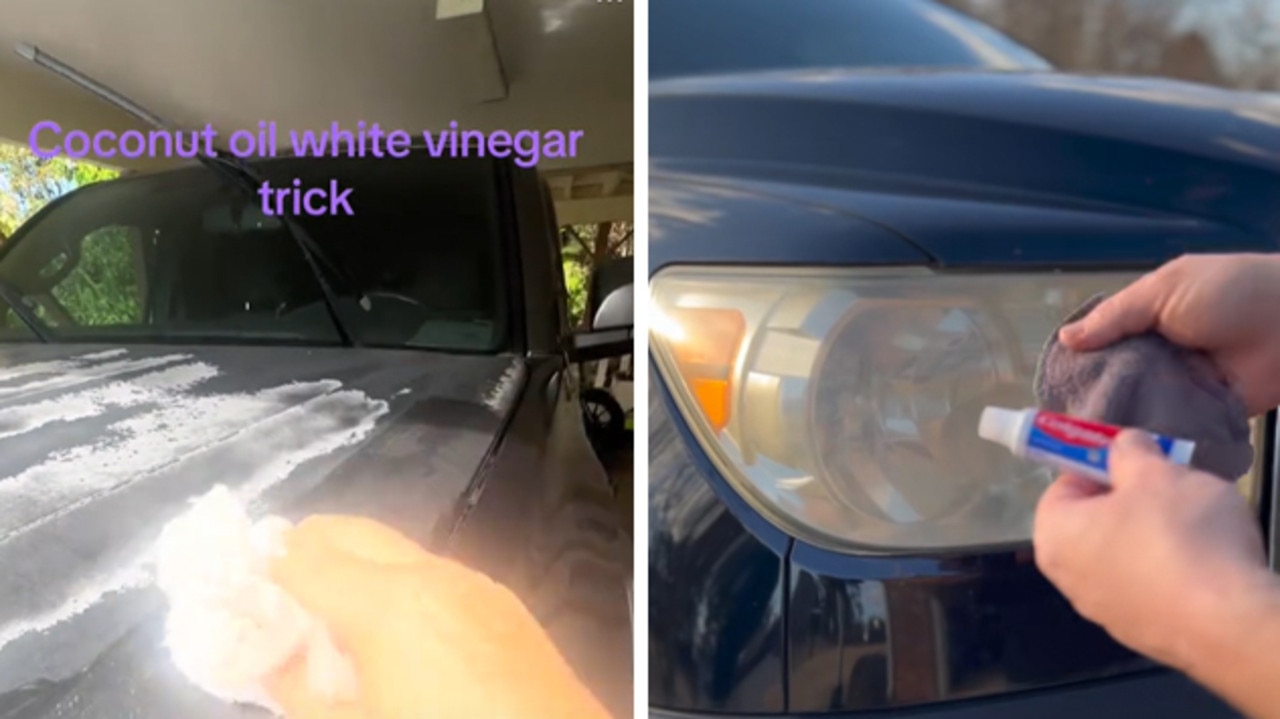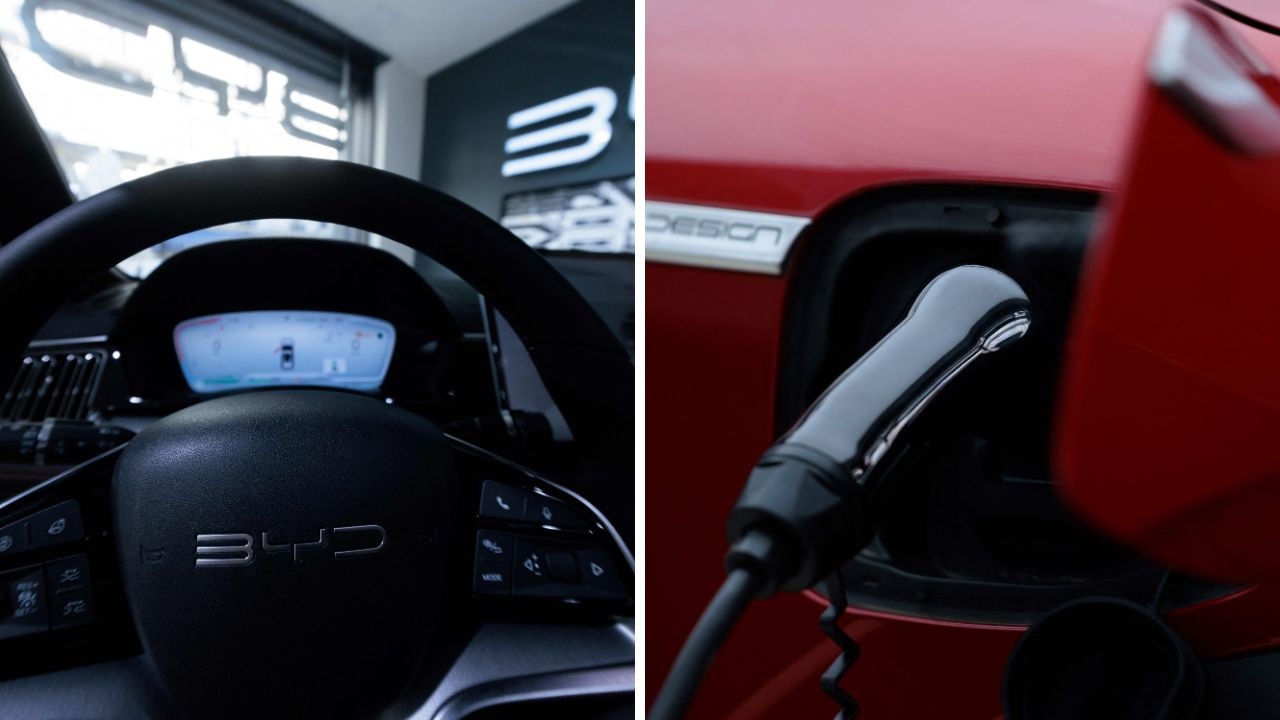2023 News Corp Car of the Year revealed
Some exciting new vehicles have landed Down Under this year, but only one can claim to be Car of the Year. The result will surprise many pundits.
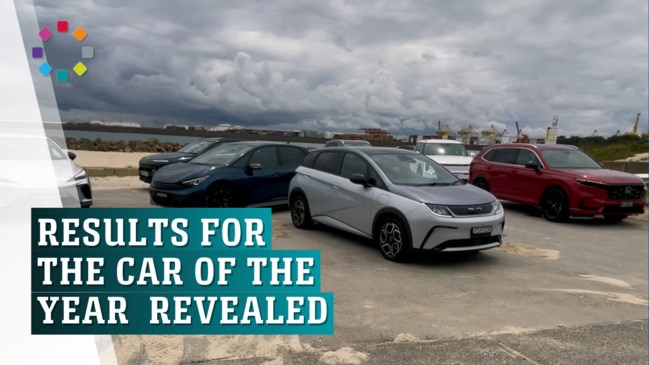
Car Advice
Don't miss out on the headlines from Car Advice. Followed categories will be added to My News.
The Honda CR-V Hybrid is the 2023 News Corp Car of the Year.
The petrol-electric family SUV beat a highly competitive field led by the BYD Seal electric sedan.
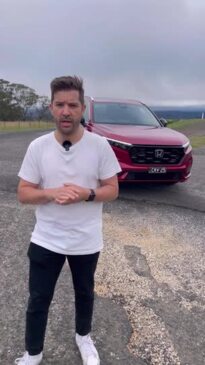
Our team of experts road tested every new arrival this year, finding the nine best models to hit Aussie roads.
FIND OUT THE FULL DETAILS OF ALL THE WINNERS
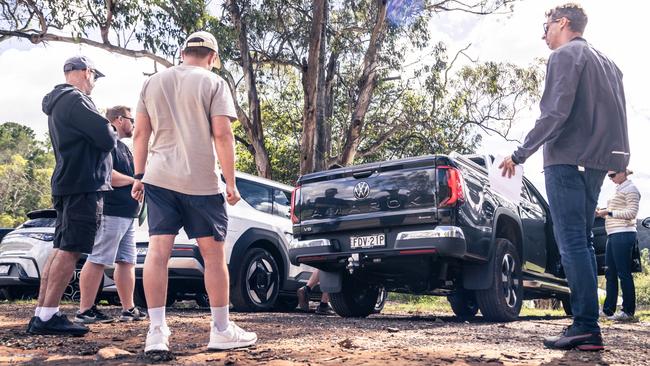
BYD DOLPHIN
Why it was here: The BYD Dolphin is Australia’s cheapest electric car, with prices starting at about $40,000 drive-away. It is packed with hi-tech features and has an impressive list of safety gear, a combination you’ll struggle to find on more expensive machines. BYD also has an impressive six-year/150,000km warranty and is cheap to service.
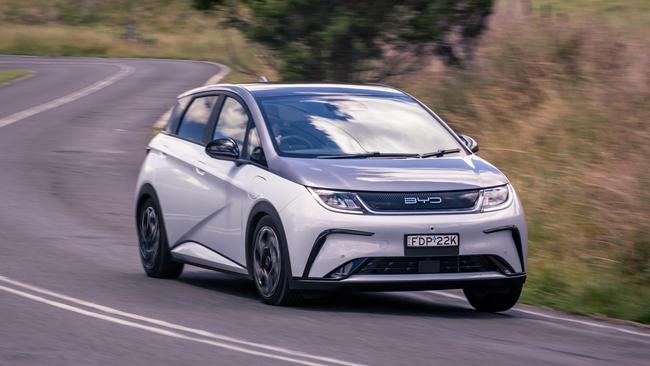
Why it didn’t win: Some of the Dolphin’s driver aids were poorly calibrated, including an overactive lane-keep assist function that caused frustration. It’s a capable city runabout but there were occasions where the steering wheel would twist in your hands under heavy acceleration, which can feel unnerving.
MG4
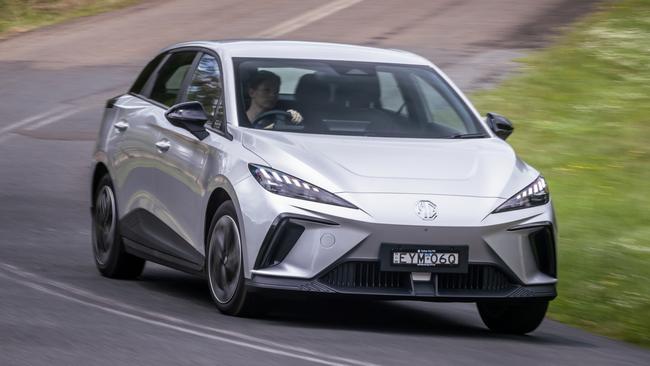
Why it was here: The little electric hatchback is the second cheapest electric car on sale in Australia. It’s a hoot to drive, with sharp steering and well sorted suspension that makes it feel light and agile by electric car standards.
Why it didn’t win: The MG4’s equipment list has gone on a hunger strike. There isn’t much to crow about in the cabin and it misses out on vital safety equipment you’d expect in a $40,000 car.
VOLKSWAGEN AMAROK
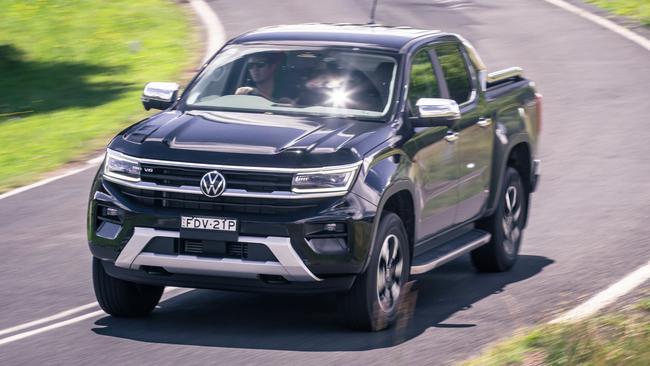
Why it was here: Utes are some of the most popular vehicles on sale and the Volkswagen Amarok was the best new dual-cab to arrive this year. It has a punchy V6 turbodiesel motor and its interior fit and finish are superior to all other utes.
Why it didn’t win: The Amarok is expensive, costing several thousand more than the equivalent Ford Ranger it is based on. It also loses some handy features from the Ranger such as the built-in side step to help give access to the tray.
KIA EV9
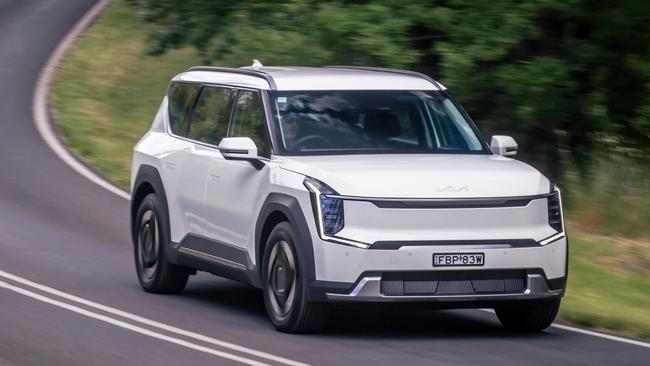
Why it was here: The Kia EV9 is the only full-size seven-seat electric vehicle on sale in Australia today. It is absolutely enormous inside, with acres of room in all rows. It is loaded with tech, safety gear and plenty of family friendly features.
Why it didn’t win: The driving range on our base EV9 was a concern and it would be hard to complete a holiday family road trip without numerous stops. Prices start at more than $100,000, which makes it prohibitively expensive and out of reach of most families.
CUPRA BORN
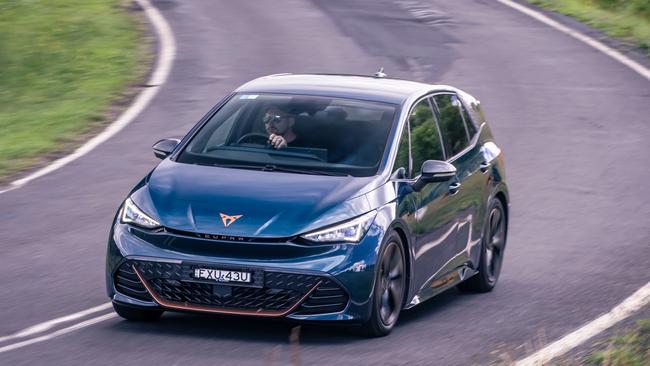
Why it was here: Bold looks and hot-hatch driving dynamics make the electric Cupra Born easy to like. Throw in a driving range of more than 500km on a single charge and the package becomes even more compelling.
Why it didn’t win: Priced at more the $60,000 the Born goes up against bigger machines such as the Tesla Model 3. If you want to drive it like it’s intended you’ll need to pony up for an optional performance pack that comes with bigger brakes, as the standard units don’t cut the mustard.
NISSAN X-TRAIL HYBRID
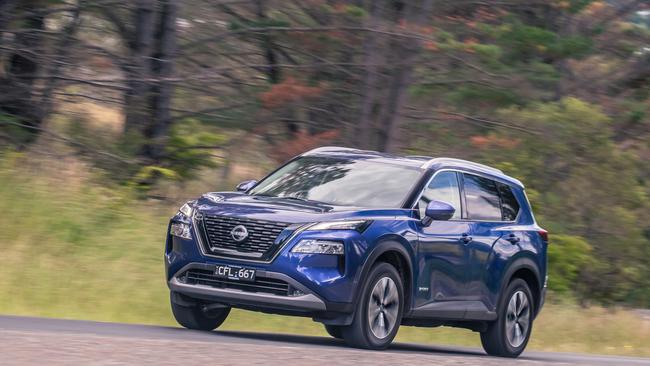
Why it was here: The Nissan X-Trail has been a family favourite in Australia for years and it is now a competitor for the ultra popular Toyota RAV4 Hybrid. Its hybrid tech is different from others and it feels more like an EV to drive, with strong, smooth acceleration. Build quality is also top notch and it has a very functional cabin.
Why it didn’t win: The X-Trail felt poorly equipped for a $54,000 vehicle. It missed out on items such as a digital driver display and its central screen was tiny. It is also expensive to run. It has pricey servicing and it needs premium unleaded petrol.
HYUNDAI KONA HYBRID
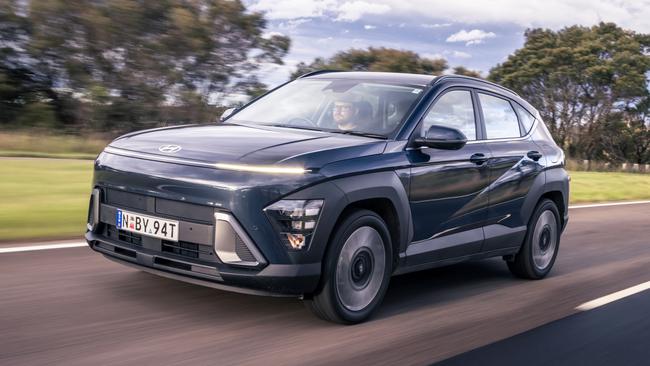
Why it was here: The new Hyundai Kona Hybrid is one of the most fuel-efficient vehicles on the road using a claimed 3.9L/100km. Hybrid power can also be had across the range, starting at $40,000.
Why it didn’t win: Hybrid power costs $4000 more than the equivalent petrol version, which looks poor value compared to Toyota that charges just $2500. The hybrid set-up lacked grunt compared to others on the market and its design is polarising.
BYD SEAL
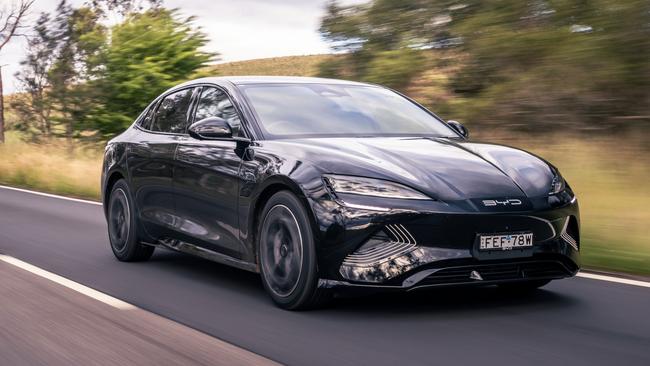
Why it was here: The BYD Seal is the biggest threat to the Tesla Model 3’s dominance. It starts at $51,000 drive-away or about $14,000 cheaper than the rival Tesla and its cabin oozes luxury. It also has a good length warranty, a driving range of up to 570km and potent performance.
Why it didn’t win: The Seal came second by one vote with some judges annoyed by its over-intrusive driver aids and its soft, floaty suspension.
HONDA CR-V HYBRID
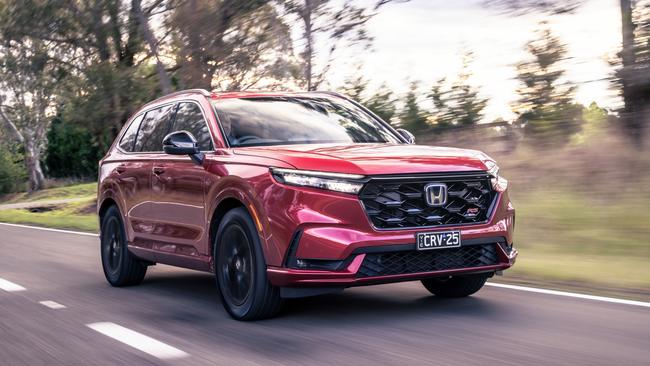
Why it won: The Honda CR-V shows the benefits of tried and tested hybrid technology. It is frugal, drinking a claimed 5.5L/100km, which drops further when driving in traffic.
Unlike its electric competition, there is no range anxiety.
The cabin quality is top shelf, with premium materials throughout and a build quality that is a throwback to Honda’s glory years.
It’s packed full of family friendly features such as stadium seating in the back row to give little ones a better view out the window, rear doors that open a full 90 degrees to make entry easier and a big boot with an auto tailgate to help when unpacking with arms are full of shopping bags.
It’s also amazingly cheap to service at just $199 a visit for the first five years and it runs on the cheapest unleaded petrol, saving you at the bowser.
The CR-V is not a perfect car though. It’s $59,990 drive-away price is expensive. Honda reserves hybrid power for its range-topper where other brands offer it on all model grades. The suspension is on the firmer side causing it to jiggle over consistent bumps but the trade-off is a stellar steering SUV.
It’s a fantastic all around family car that represents Honda at its best.
Originally published as 2023 News Corp Car of the Year revealed




